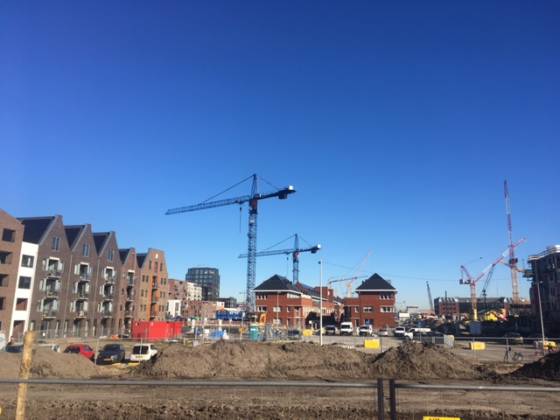Amsterdam city council to buy up social housing to keep it in the public sector


Amsterdam city council is considering investing directly in social housing which is sold off by housing corporations, to make sure that is stays in the rent-controlled sector.
City housing chief Laurens Ivens says there is ‘no choice’ other than to buy property to make sure there is no reduction in the amount of social housing in the Dutch capital. Currently, housing corporation property is often bought up by developers and investors who charge higher rents.
Housing falls into the social housing sector if the rent is less than €752 per month. Some 40% of Amsterdam’s housing stock is currently rent controlled.
Housing corporations sell off some of their housing stock every year to raise money to build new, and better properties. The number of housing corporation houses and flats in Amsterdam fell from 195,000 to 179,600 between 2011 and 2019.
Last year, housing corporations started work on 2,270 new rent-controlled properties in Amsterdam and sold around 1,000, according to the Parool.
Housing corporations argue that they have to sell stock because of a special tax the government levies over social housing rental income – money which the lobby group says would be better spent on building new homes.
In total, Amsterdam’s housing corporations paid the treasury €204m in extra taxes last year.
Criticism
Amsterdam and Ivens have been criticised for failing to tackle the city’s housing crisis and for not doing enough to boost the supply of affordable homes. The waiting list for social housing in the city is now 15 years.
In particular, housing corporations say the city could reduce the cost of building land, so it is cheaper to develop new social housing projects.
Hester van Buren, director of housing corporation Rochdale, told DutchNews.nl that many aspects of the plan – such as the price the city is willing to pay – remain unclear.
‘Ivens would be better making sure that we can build, rather than putting up barriers via all sorts of demands about cultural history, size, types of resident and sustainability,’ she said. ‘The rules often make it difficult to realise projects or make developments too expensive.’
Thank you for donating to DutchNews.nl.
We could not provide the Dutch News service, and keep it free of charge, without the generous support of our readers. Your donations allow us to report on issues you tell us matter, and provide you with a summary of the most important Dutch news each day.
Make a donation